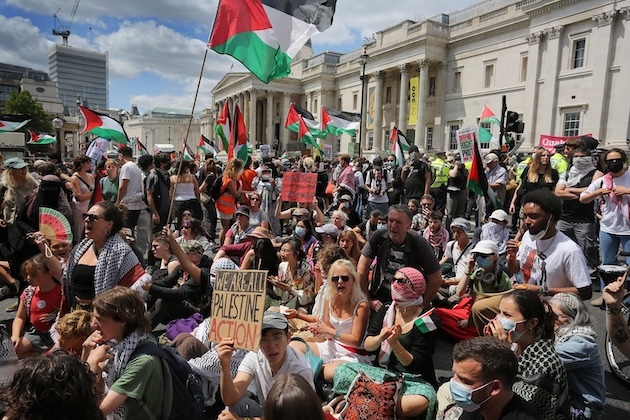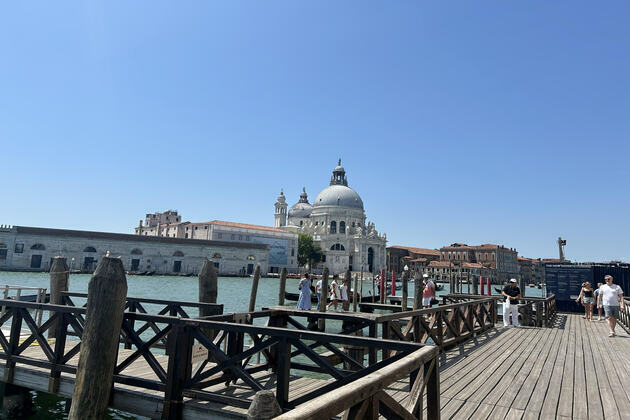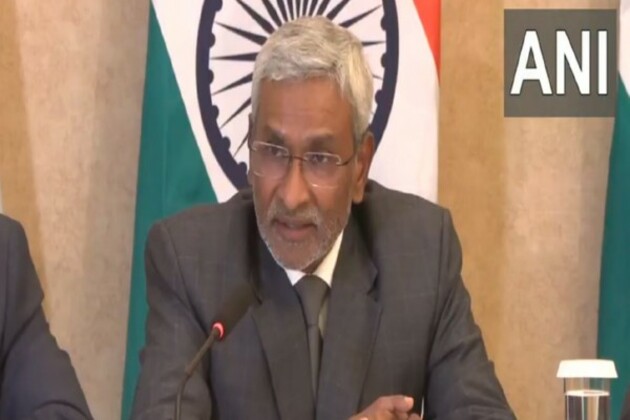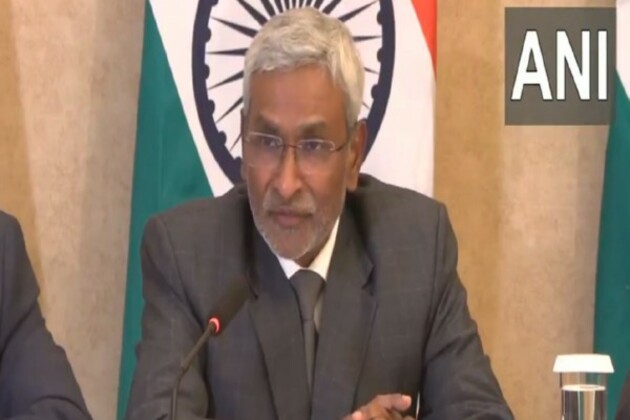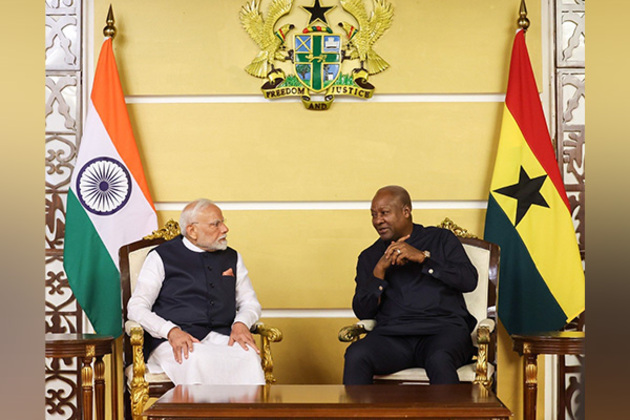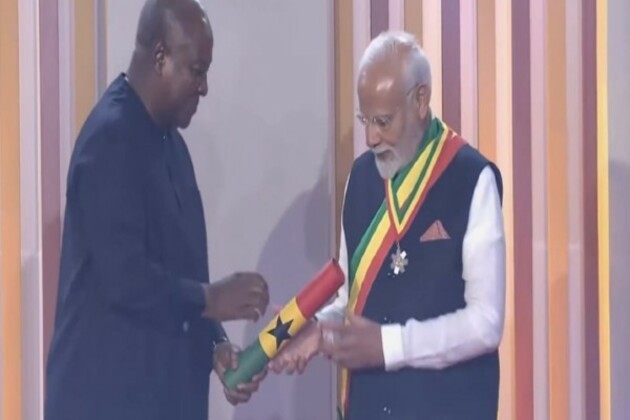Financing for Development Requires Reforming International Financial Architecture to End Instability, Not Just Finding Money, Round-Table Discussion Hears
Press UN
03 Jul 2025, 14:08 GMT+10

SEVILLA, SPAIN (3 July) — Financing for development was never just about finding money for the Sustainable Development Goals (SDGs), it was and still is about shifting the very foundations of a global financial architecture that reproduces instability, a speaker at today’s round-table discussion reminded delegates at the fourth International Conference on Financing for Development.
The six round tables held over four days on the sidelines of the plenary brought together representatives of Governments, international financial institutions and United Nations bodies in a series of wide-ranging conversations, about mobilizing domestic resources and upholding the multilateral trading system, among others. “Reforming the international financial architecture and addressing systemic issues” was the theme of the sixth and final multi-stakeholder round table.
Africa Kiiza of Christian Aid, one of the discussants who spoke on behalf of the Conference’s civil society mechanism, said: “I come from a continent” where the effects of systemic inequality are all too real. Global South economies are vulnerable “not because we lack innovation or willpower” but because they are locked into low positions in global economic hierarchies due to United States dollar dominance, small vote shares at international financial institutions and biased ratings.
Highlighting the unchecked influence of credit-rating agencies, he said that moving beyond Sevilla, the international community must leave behind such inequitable mechanisms that do not serve the interests of developing countries. He called for the launch of an international public credit-rating agency under the aegis of the United Nations. It is also necessary to review the mandates of the International Monetary Fund (IMF) and the World Bank because their governance is far from inclusive.
Special Drawing Rights Allocation during COVID-19 Pandemic Lays Bear Unequal Access to International Financial Institutions’ Resources
Facinet Sylla, Minister for Budget of Guinea, recalled that, when the COVID-19 pandemic happened, international organizations, such as the IMF did something extraordinary — they allocated more than $1.1 trillion for special drawing rights. This was of tremendous significance, but the quota system was such that the countries that needed the resources least had the most access, while sub-Saharan countries such as his had the least access. It is clear that the solution is not just reshaping financial institutions but changing the way they operate, he pointed out.
“I do know what I am talking about,” he said, noting that he spent a good amount of his career at IMF. When that institution carries out a debt sustainability analysis, some of the elements it takes into account penalize developing countries; this needs to be revised. He also pointed to his country’s robust internal domestic resource mobilization system: it has improved revenue collection by more than 30 per cent per month. Financial management has been digitized and interconnected, reducing corruption and fraud and ensuring resources go where needed.
Middle-Income Countries Need More Equitable Treatment
Mthuli Ncube, Minister for Finance, Economic Development and Investment Promotion of Zimbabwe, called for more equitable treatment for middle-income countries. His country is focusing on domestic resource mobilization, he said, noting that taxes on digital payments are a big source of revenue. During the pandemic, Zimbabwe was able to buy vaccines for cash because of this revenue.
New sources of tax revenue should be sought, including informal sector taxes and sin taxes, he said, adding that, in Zimbabwe, if you buy fast food, you pay a tax for that. Climate insurance should also become a critical part of domestic and global financial architecture, he said, stressing the need to provide cash transfers to affected people when climate shocks happen.
Hervé Ndoba, Minster for Finance and Budget of the Central African Republic, said it is unacceptable that Africa, with its 1.5 billion people, currently has the same voting rights in international financial institutions as some countries with populations under 100 million. During crises, it is crucial to reallocate unused special drawing rights to fragile countries without restrictive conditions, he said, proposing the possibility of using such rights as direct budget support.
He also stressed the need to support countries' efforts to attract private financing and enable credit enhancement for green finance. “I come from a country that has 10 per cent of the Congo Basin Forest — the second green lung of the world,” he said, but, unfortunately, it has not benefited from this natural capital that provides an essential service to the rest of the world.
Efforts by Multilateral Development Banks to Be More Effective
Speaking from the perspective of an international financial institution, Carlo Monticelli, Governor of the Council of Europe Development Bank, said that multilateral development banks such as his want to be part of the solution. “We are making progress,” he said, pointing to the precise set of actions agreed upon and spelled out in the Group of 20 Roadmap towards Better, Bigger and More Effective Multilateral Development Banks. His Bank is offering more diverse financial instruments, such as hybrid capital and risk-transfer mechanisms, he said, also expressing willingness to share data that can debunk “the ultimately misfounded rating” given to multilateral development banks by the previous speakers. “We are optimizing our balance sheets with discipline and creativity,” he said.
Highlighting various initiatives to increase and simplify lending, he said the Council of Europe Development Bank is exploring further action in 2025 to scale up investment in social infrastructure, such as health, education, water and sanitation. These are essential components of a dignified life and also job creation. He also pointed to the signing of mutual reliance agreement that can “make the life of our borrower easier” by making the borrowing process more efficient. Expressing commitment to learning from “each other’s successes and failures”, he underscored that scale is not an end in itself; it is an instrument.
Importance of Scale in Addressing Crisis, Debt
The round table was moderated by Rebeca Grynspan, Secretary-General of the United Nations Conference on Trade and Development (UNCTAD). She highlighted the importance of scale — during COVID-19, she recalled, IMF mobilized huge resources. But, what it mobilized over three years for the entire global membership was roughly equal to what the United States Federal Reserve injected into its own financial system one particular month. Scale is an issue when external shocks are causing debts to pile up even in countries that govern responsibly. “Being vulnerable is risky,” she said. Also stressing that developing countries must have the “voice and representation” to benefit from economic shifts, she pointed out: “When I was studying economics, we didn’t have colours […] but now we have the blue economy, we have the green economy, we have the orange economy.”
The round table was co-chaired by Carlos Cuerpo Caballero, Minister for Economy, Commerce and Business of Spain, who recalled how his country supported the expansion of the IMF Board to include a third seat for sub-Saharan Africa. His co-chair, Seedy Keita, Minister for Finance and Economic Affairs of the Gambia, added that developing countries need to be at the table when prices are managed and solutions are designed. His country spends more on debt service than social services for its people — this is not sustainable. Hussain Mohamed Latheef, Vice-President of Maldives, and José Viñals, Senior Advisor to the Board, Standard Chartered, offered additional remarks. The round table also heard from additional delegates and civil society representatives in an interactive discussion.
 Share
Share
 Tweet
Tweet
 Share
Share
 Flip
Flip
 Email
Email
Watch latest videos
Subscribe and Follow
Get a daily dose of Zimbabwe Star news through our daily email, its complimentary and keeps you fully up to date with world and business news as well.
News RELEASES
Publish news of your business, community or sports group, personnel appointments, major event and more by submitting a news release to Zimbabwe Star.
More InformationInternational
SectionUK lawmakers desigate protest group as terrorist organization
LONDON, UK - Lawmakers in the United Kingdom have voted overwhelmingly to proscribe the direct-action group Palestine Action as a terrorist...
Dalai Lama to address Buddhist conference, reveal succession plan
DHARAMSHALA, India: The Dalai Lama is set to address a significant three-day conference of Buddhist leaders this week, coinciding with...
US Supreme Court backs Texas efforts to shield minors online
WASHINGTON, D.C.: In a significant ruling last week, the U.S. Supreme Court upheld a Texas law requiring age verification for users...
Turkey, France battle wildfires amid early Europe heatwave
ISTANBUL/PARIS/BRUSSELS: As searing temperatures blanket much of Europe, wildfires are erupting and evacuation orders are being issued...
Venetians protest Bezos wedding with march through the town
VENICE, Italy: Over the weekend, hundreds of protesters marched through the narrow streets of Venice to voice their opposition to billionaire...
New French law targets smoking near schools, public spaces
PARIS, France: France is taking stronger steps to reduce smoking. A new health rule announced on Saturday will soon ban smoking in...
Africa
SectionHow UN Women turns gender data into impact
Data to end violence: United Republic of Tanzania “Before, I didn’t know where to report cases of violence. Now, I have...
Ghana shows "clear interest" in India's defence equipment
Accra [Ghana], July 3 (ANI): Ministry of External Affair's Secretary (Economic Relations) Dammu Ravi stated that Prime Minister Narendra...
India-Ghana signs MoUs boosting cooperation in health and culture
Accra (Ghana), July 3 (ANI): India and Ghana signed four Memoranda of Understanding (MoUs) on Wednesday to strengthen bilateral cooperation...
India-Ghana see immense scope in area of critical energy: PM Modi
Accra [Ghana], July 3 (ANI): Prime Minister Narendra Modi on Wednesday (local time) held bilateral meeting with Ghanaian President...
"Matter of immense pride":PM Modi conferred with Ghana's highest
Accra (Ghana), July 3 (ANI): Prime Minister Narendra Modi was conferred with The Officer of the Order of the Star of Ghana, the country's...
"Matter of immense pride", PM Modi conferred with Ghana's highest
Accra (Ghana), July 3 (ANI): Prime Minister Narendra Modi was conferred with The Officer of the Order of the Star of Ghana, the country's...

